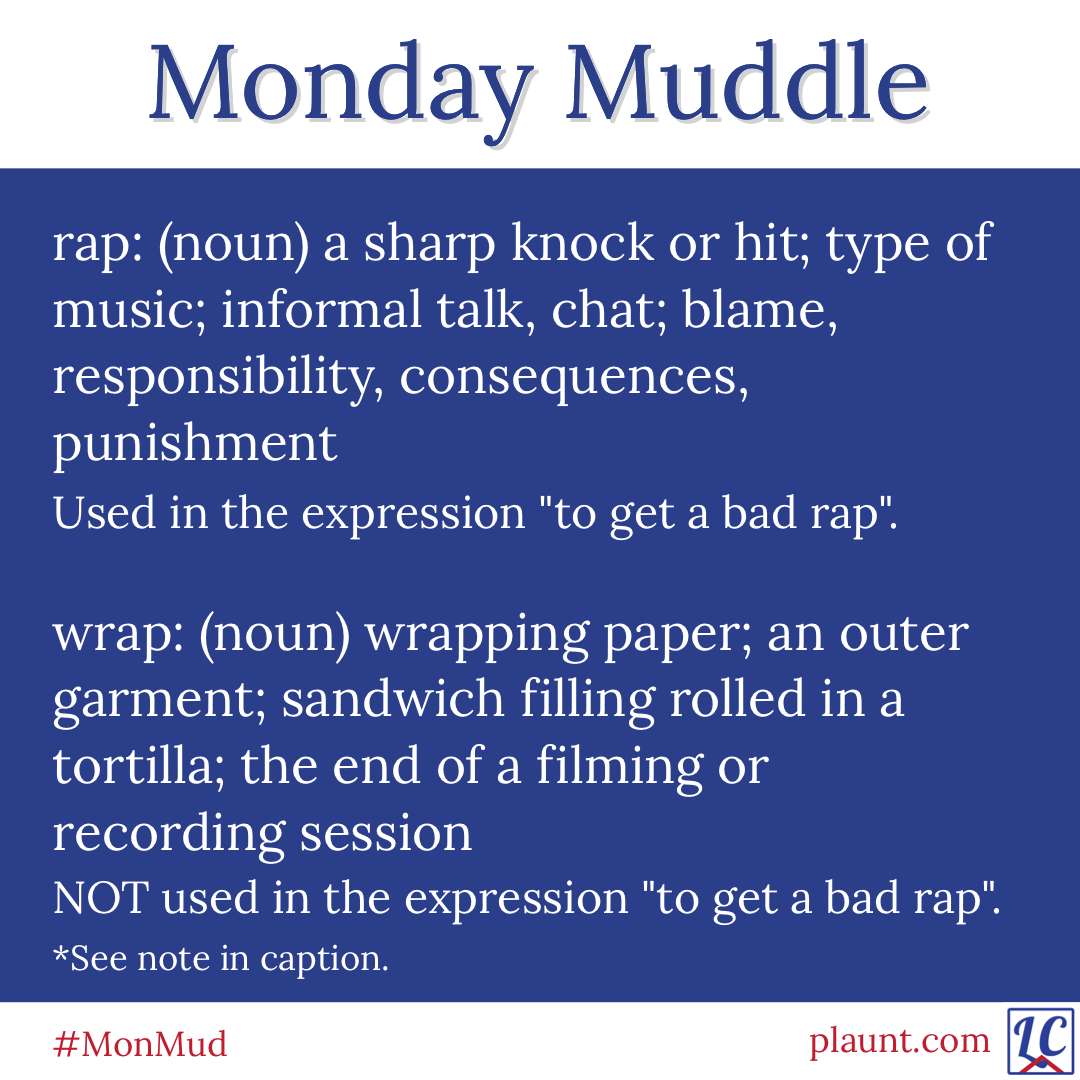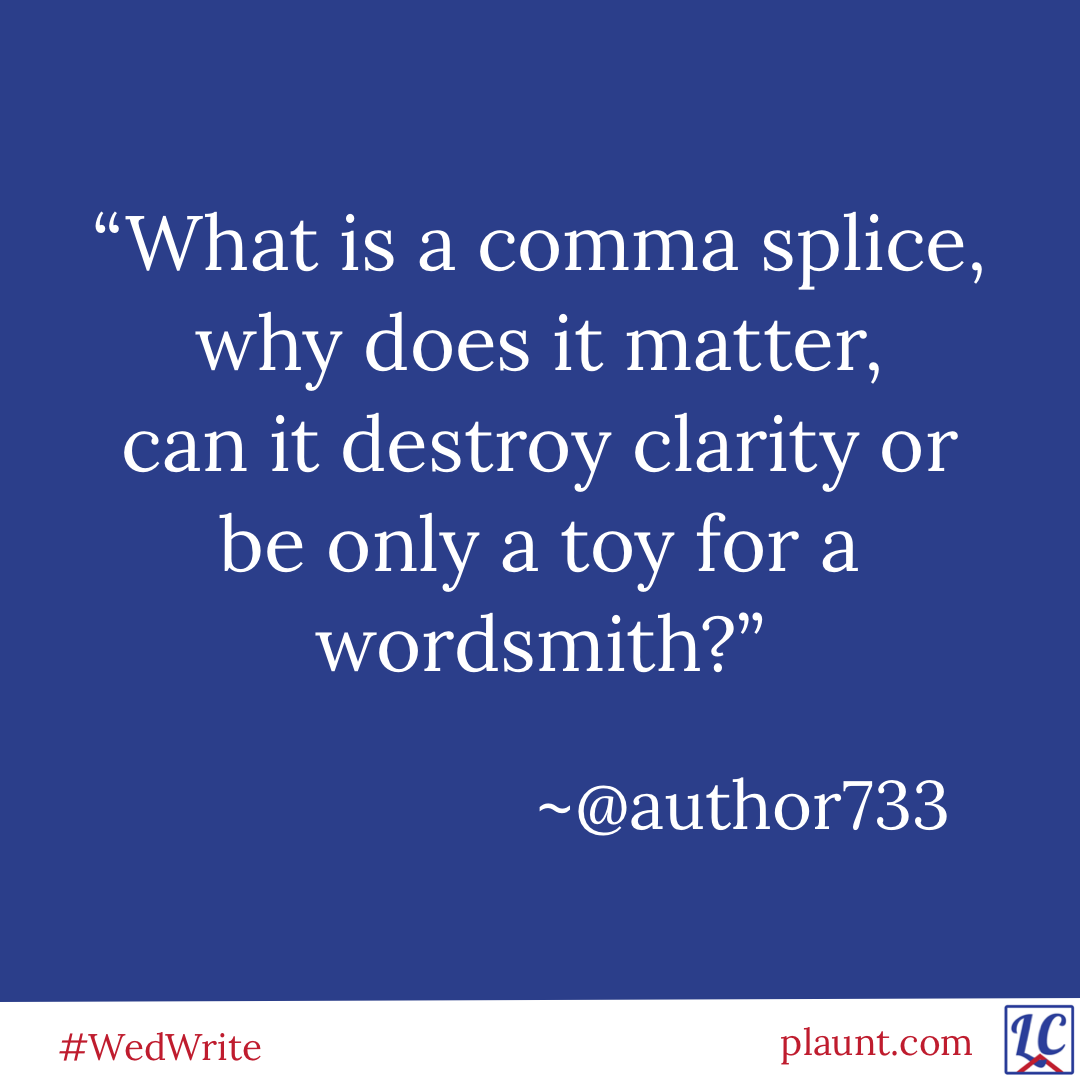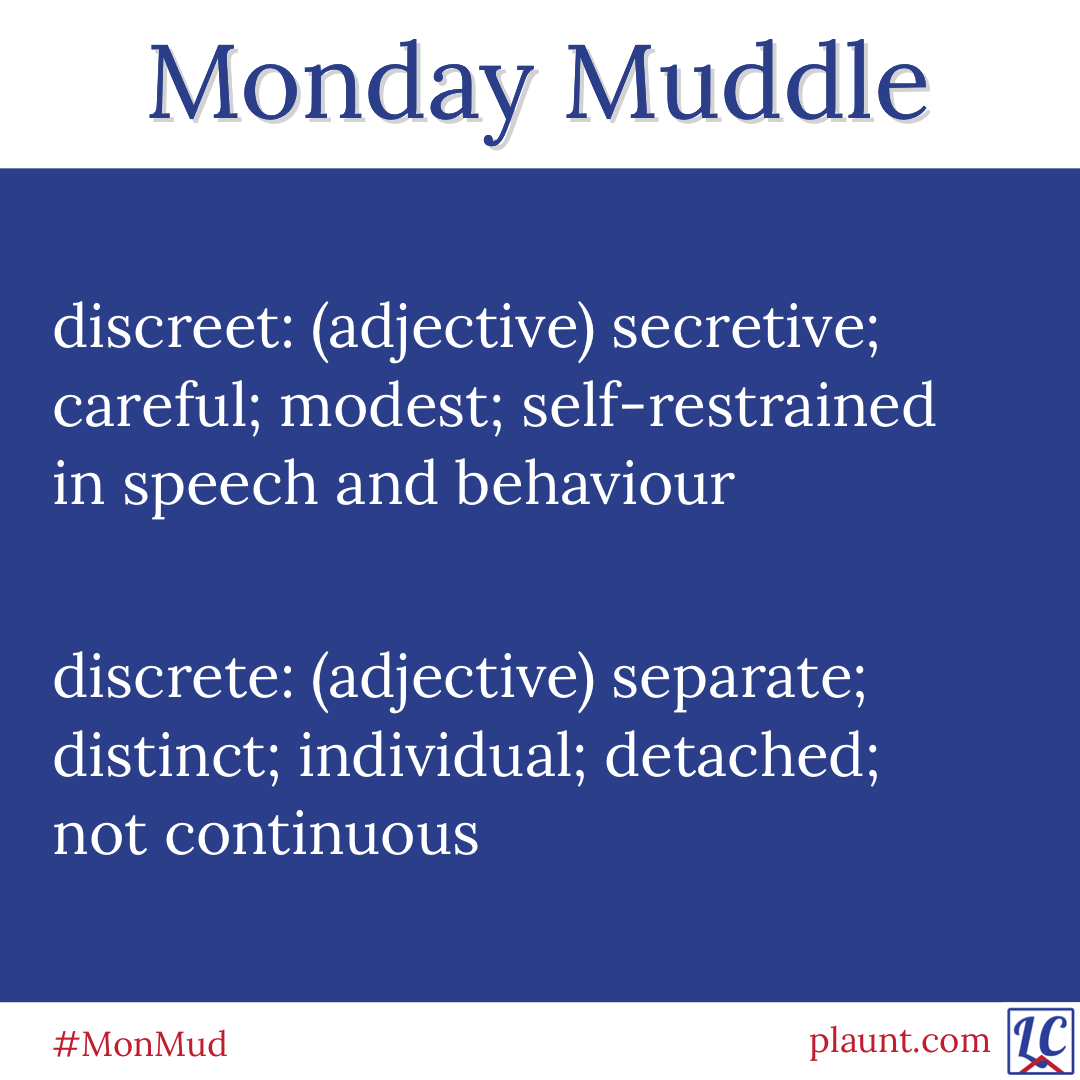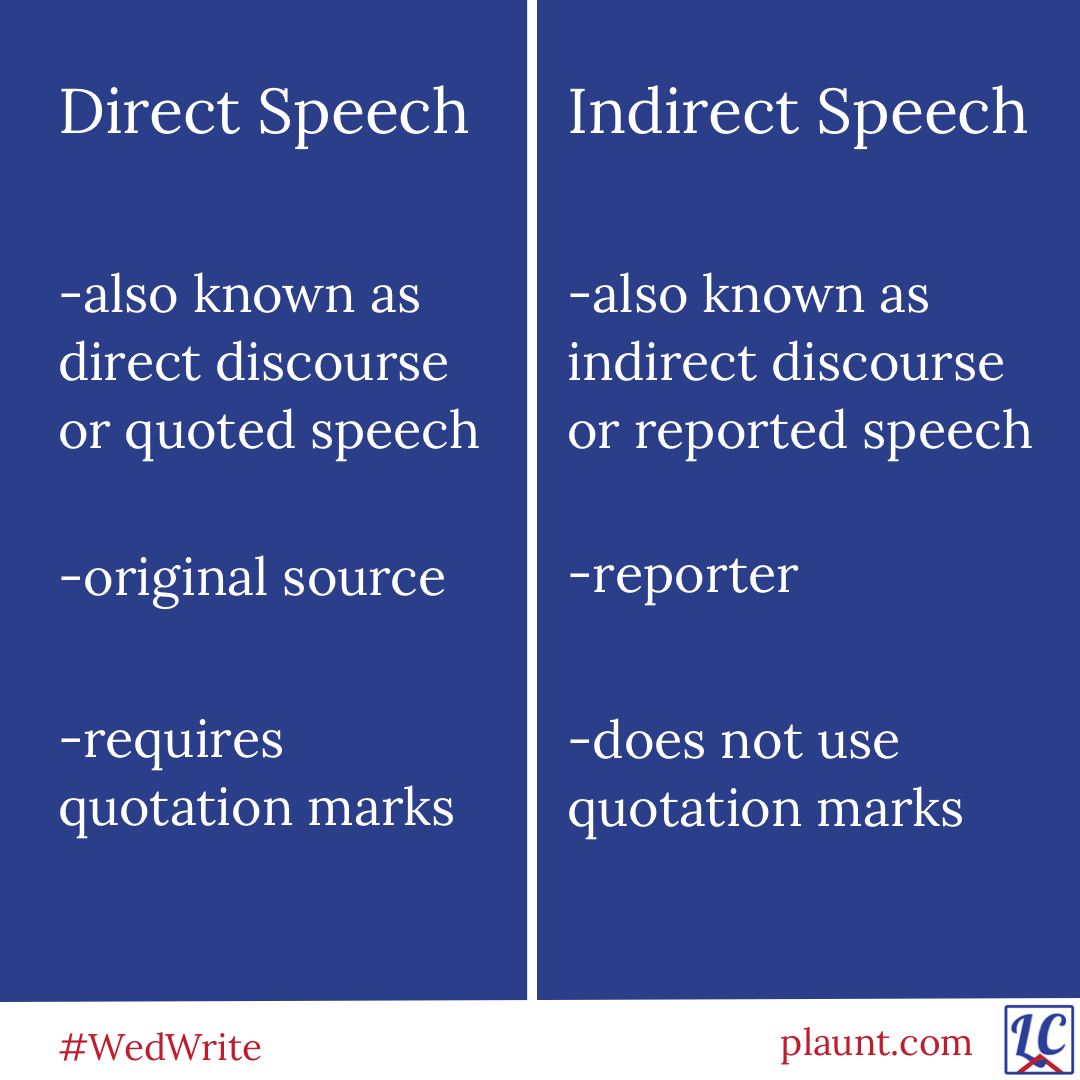
Wednesday Writing


Write a story with only two sentences. Use the photo for inspiration if you wish.
Photo by Casey Horner on Unsplash.

Both these words can also be used as verbs and adjectives.
If you take the rap, you take the blame or the responsibility for an undesired, possibly illegal, activity. If you beat the rap, that undesired activity still happened, but you didn’t have any consequences from it.
To get a bad rap means to get punishment or consequences that you didn’t deserve. To get a bad wrap probably means that your tortilla was filled with things that were not to your liking.
Bubble wrap is a protective packing material made of plastic with air sealed into it in small compartments.
Bubble rap might be a new version of rap music, or possibly having a casual conversation through soap bubbles. Neither has made it to mainstream popularity levels yet, so I’m just speculating.


One of my followers asked this question:

I’m going to answer these questions in reverse order, and then add a few more of my own.
Is a comma splice only a toy for a wordsmith?
I wouldn’t say “only”. Some wordsmiths like to play outside the boundaries of the rules, so just about any spelling, grammar structure, or punctuation can be a toy for a wordsmith. But there are a lot of writers who use comma splices simply because they don’t know any better.
Can a comma splice destroy clarity?
Perhaps. The purpose of grammar, spelling, and punctuation is to have the little black squiggles on the page make sense to the person who is reading them. That’s why the rules exist. Disregarding those rules can sometimes lead to a lack of clarity, but not always. If a wordsmith is truly a master, they might be able to make their meaning perfectly clear, even while playing outside the rules.
Why does it matter?
Part of the answer to this question is pretty much the same as the last. It matters because you want your reader to understand the meaning of your words, and that will be easier if you follow the standards. Many instances of wordplay depend on paying attention to the punctuation, because changing the punctuation can change the meaning. That’s okay if that’s what you want—if you’re being the game-playing wordsmith from the first question—but not so good if you’re confusing your readers. I would add that it also matters because some readers are judgemental. Some will completely miss the point of your post if you have a typo, and will feel not only justified but also honour-bound to point it out to you. If you want to keep the attention and respect of your readers, I recommend not using comma splices, or any other incorrect language structure, unless it serves a specific purpose.
What is a comma splice?
A comma splice is a sentence in which there are two (or in the case of your original question, more than two) independent clauses that are joined only by a comma.
Example:
Bill was late, we waited for him.
What is an independent clause?
An independent clause is a clause that can stand alone as a complete sentence. To be a complete sentence, or to qualify as independent, the clause must express a complete thought and have a subject and a predicate (verb).
How do you fix a comma splice?
There are three possibilities.
The simplest way to fix a comma splice is to change the comma to a semicolon. If you are writing longhand, that only requires adding one little dot above the comma. Use a semicolon if the two independent clauses are closely related. Usually they are if they were written as a comma splice to begin with.
Example:
Bill was late; we waited for him.
Another way to fix a comma splice, which is suitable if the two clauses are not closely related, and also if you already have a lot of long sentences in your document, is to make each clause a separate sentence. Put a period (full stop) at the end of the first, and start the second with a capital letter.
Example:
Bill was late. We waited for him.
The third way to fix a comma splice is to add a coordinating conjunction after the comma.
Example:
Bill was late, but we waited for him.
What is a coordinating conjunction?
Coordinating conjunctions are used to join two parallel structures. In the case of two independent clauses, there is a comma before the conjunction. Coordinating conjunctions can be used with phrases and single words as well. Here is an example with the coordinating conjunction “and”: A storm just passed through; there was a lot of wind and rain. Notice that in this example there was no need for a comma before the coordinating conjunction.
What are all the coordinating conjunctions?
Good news—there are only seven to remember. They are: for, and, nor, but, or, yet, so. Some people remember them by the acronym FANBOYS. But you could also remember them as a rhyming beat. Try it.
Write a story with only two sentences. Use the photo for inspiration if you wish.
Photo by Hatham on Unsplash.

The trick I use to remember whether to use discreet or discrete is based on the placement of the Es. In discreet, which is used for keeping things quiet, the two Es are close together as if they are whispering in each other’s ears telling a secret. In discrete, which is used for things that are separate, the two Es are separated by a T. Let me know if that also helps you remember which is which.



*A note about terminology before I get to the explanation:
In this context, a reporter is someone who relays the meaning of someone else’s statement in their own words. The original source refers to the person who first said the words that are being quoted or reported.
Quotation marks are called inverted commas in some parts of the world.
If you share someone’s exact words, you put their words between quotation marks. That is direct speech. If you relay the meaning of what someone else said, but you put it in your own words, that is indirect speech.
Direct speech is also known as direct discourse or quoted speech. Indirect speech is sometimes called indirect discourse or reported speech.
When the information you are sharing in indirect speech is a statement, you use a that-clause.
| Direct Speech | Indirect Speech |
| John said, “I am hungry.” | John told them that he was hungry. |
*Note: There is a recent trend among writers to eliminate all unnecessary words, including the word “that”. A that-clause is still a that-clause even if the “that” is omitted.
*Also note: Sometimes you have to change the pronoun when you switch from direct to indirect speech. John, when talking about himself, said “I am hungry.” But when you are talking about John, you need to say that he was hungry.
When the information you are sharing in indirect speech is a question, you use an if-clause, a whether-clause, one of the 5 Ws (who, what, when, where, why), or how.
| Direct Speech | Indirect Speech |
| He asked, “Did she have a good flight?” | He asked if she had a good flight. |
| She asked, “Would you like Chinese or Mexican food for supper?” | She asked whether I would prefer Chinese or Mexican food for supper. |
| I asked, “Who are they?” | I asked who they were. |
| She asked, “How are you?” | She asked how I was. |
*Note that when you change a quoted question to indirect speech, it is no longer a question. Therefore the sentence in indirect speech omits the question mark and changes the word order.
When the information you are sharing in indirect speech is a command, you use the infinitive form of the verb (to + verb). This format can also be used in the context of advice, warning, or encouragement.
| Direct Speech | Indirect Speech |
| The teacher said, “Listen carefully.” | The teacher told the class to listen carefully. |
| The investor said, “By low; sell high.” | The investor advised her to buy low and to sell high. |
| The flight attendant said, “Watch your step!” | The flight attendant warned me to watch my step. |
| His mother said, “Rest so you will feel better.” | His mother encouraged him to rest so he would feel better. |
Indirect speech is usually in a past tense, because you are stating what was previously said. However, if the statement is something that continues to be true, indirect speech could use the present tense.
| Direct Speech | Indirect Speech |
| She said, “Paris is an interesting city.” | She said that Paris is an interesting city. |
When you change direct speech into indirect speech, you shift the tense one step back into the past.
For example, Simple Present changes to the Simple Past. Follow the chart for verb tense changes with examples.
| Direct Speech | Indirect Speech |
| Simple Present | Simple Past |
| He asked, “Do you want to go to a concert tonight?” | He asked if I wanted to go to a concert tonight. |
| Present Perfect | Past Perfect |
| I replied, “I have never heard that group before.” | I replied that I had never heard that group before. |
| Present Progressive *Note: Progressive is sometimes called Continuous | Present Progressive |
| He said, “I am going to invite Marie and Charles too.” | He said that he was going to invite Marie and Charles too. |
| Present Perfect Progressive | Past Perfect Progressive |
| She said, “I have been hoping to hear this group perform live.” | She said that she had been hoping to hear this group perform live. |
| Simple Past | Past Perfect |
| He said, “I went to the arena to buy tickets.” | He said that he had gone to the arena to buy tickets. |
| Past Progressive | Past Progressive |
| They said, “We were going to the beach when we heard about the concert.” | They said that they had been going to the beach when they heard about the concert. |
| Future | Conditional |
| She said, “I will make dinner tonight.” | She said that she would make dinner tonight. |
The exception to this pattern is that the Past Perfect does not change. Past Perfect is as past as you can get, so if the sentence is written in the Past Perfect in Direct Speech, it is also written in the Past Perfect in Indirect Speech.
| Direct Speech | Indirect Speech |
| Past Perfect | Past Perfect |
| She asked, “Had the concert already started when they arrived?” | She asked if the concert had already started when they arrived. |
Now that you know the difference between direct speech and indirect speech, how do you know when to use each? Unless you are doing an assignment that requires one or the other, the choice is up to you. Think about the kind of document you are writing. Is it formal or academic? Or is it more informal and conversational? Is it important to relay the exact words that someone said? Or is it more important to get the idea of what they meant? Are you writing something that you want people to share? A good quotation can be used to promote the article. Does the person you are referencing have a lot of good things to say, but doesn’t say them succinctly enough for quotations? Putting their thoughts into your own words might make your article more readable. In many situations a balance of both is ideal. Choose what will best suit your context.
Write a story with only two sentences. Use the photo for inspiration if you wish.
Photo by Chronis Yan on Unsplash.
